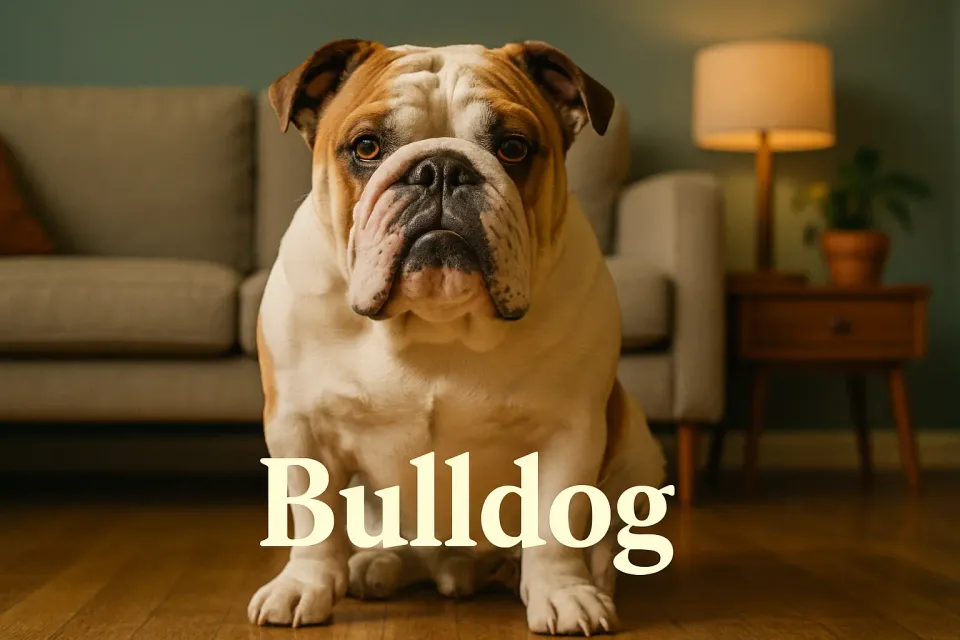All About French Bulldog
French Bulldogs with our comprehensive guide. Discover everything from their adorable appearance to grooming tips, health considerations,

The French Bulldog, with its distinctive bat-like ears, compact build, and charming personality, has captured the hearts of dog lovers around the world. Known for its affectionate nature and playful demeanor, this breed has become a sought-after companion for families and individuals alike. In this article, we'll explore the fascinating world of the French Bulldog, from its history and characteristics to care tips and why it has become a beloved member of households globally.
The French Bulldog is more than just a pet; it's a cherished companion that brings joy, laughter, and love to households worldwide. With their unique charm, playful antics, and affectionate nature, Frenchies continue to win the hearts of dog lovers and solidify their place as one of the most adored canine companions.
Origin and History

The French Bulldog's roots trace back to the lace workers of Nottingham, England, who brought these little dogs with them when they migrated to France during the Industrial Revolution. Initially bred as companions, the breed gained popularity among the French bourgeoisie and eventually made its way to other parts of the world.
The origin and history of the French Bulldog are intriguing and trace back to the early 19th century. Here's a more detailed exploration:
Lace Workers and Migration: The French Bulldog's story begins in the lace-making region of Nottingham, England, during the Industrial Revolution. In the mid-1800s, lace workers sought better opportunities and migrated to northern France, particularly in the Nottingham region. These workers brought along their small bulldog companions, which were likely a miniature version of the English Bulldog.
French Aristocracy's Adoption: In France, the little bulldogs captured the attention of the French aristocracy. They became popular companions among the wealthy, including the lace workers' new French employers. The breed quickly gained favor for its charming appearance, amiable disposition, and adaptability to city living.
Miniature Bulldogs in France: As the breed continued to gain popularity, breeders in France began refining its characteristics. They selectively bred for smaller size, erect "bat ears," and a compact build. This marked the evolution of the French Bulldog into a distinct breed, differentiating it from the larger English Bulldog.
Symbol of Parisian Culture: By the late 19th century, the French Bulldog had become a symbol of Parisian culture. It was often seen in the company of artists, writers, and creatives in the bohemian neighborhoods of Paris. Paintings and illustrations from that era often featured the charming and comical French Bulldog.
Crossing the Atlantic: The breed's charm didn't stay confined to French borders. As the 19th century turned into the 20th, French Bulldogs made their way across the Atlantic, finding admirers in the United States. The American fascination with the breed led to its recognition by the American Kennel Club (AKC) in 1898.
Cultural Impact: French Bulldogs continued to capture the hearts of people from various walks of life. They became popular mascots for various societal groups, including the French Girl Scouts. The breed's popularity surged in the early 20th century, and its iconic appearance was often featured in art and advertising.
Modern Popularity: In recent decades, the French Bulldog has experienced a resurgence in popularity. Its compact size, friendly demeanor, and adaptability to urban living have made it a favorite choice for city dwellers. Celebrities, social media influencers, and dog lovers worldwide have contributed to the breed's status as one of the most sought-after and recognizable companion dogs.
The French Bulldog's journey from the lace-making districts of England to the high society of France and eventually to homes worldwide is a testament to its enduring charm and adaptability. Its history reflects a blend of working-class roots, aristocratic admiration, and cultural symbolism, culminating in the beloved breed we know today. The French Bulldog's story continues to unfold, with each playful snort and affectionate gesture contributing to its legacy as a cherished companion.
Distinctive Characteristics

French Bulldogs are easily recognizable by their unique features. They have a compact, muscular build, a smooth coat, and a signature "bat ear" appearance. Their expressive eyes and charming snub noses add to their overall endearing look. Despite their small size, Frenchies exude a sturdy and well-proportioned physique.
The distinctive characteristics of the French Bulldog contribute to its unique and charming appearance, making it easily recognizable among dog breeds. Let's delve into the specifics:
Compact Build: French Bulldogs have a sturdy and muscular build despite their small size. They are a compact breed with a well-rounded physique.
Bat-Like Ears: One of the most iconic features of the French Bulldog is its bat-like ears. These ears are large, wide at the base, and stand erect, giving the breed an alert and expressive appearance.
Snub Nose and Wrinkled Face: Frenchies have a distinctive snub or "pushed-in" nose, which is a characteristic of brachycephalic breeds. Their faces often feature adorable wrinkles, especially
Large, Round Eyes: The breed is known for its large, expressive, and round eyes. The eyes are set wide apart and convey a sweet and affectionate expression.
Smooth Coat: French Bulldogs have a short, smooth, and fine coat that lies close to the body. The coat is soft to the touch and requires minimal grooming compared to breeds with longer hair.
Signature Tail: Frenchies typically have a short and straight or slightly curved tail. The tail is often referred to as a "screw tail" and is not docked, remaining a natural part of the breed's appearance.
Distinctive Colors: French Bulldogs come in a variety of coat colors, including fawn, brindle, cream, white, and a combination of these. The American Kennel Club (AKC) recognizes a wide range of acceptable colors and patterns for the breed.
Compact and Well-Proportioned Body: Despite their small stature, French Bulldogs exhibit a well-proportioned body. Their bodies are muscular, and they have a strong bone structure, contributing to their overall balance.
Charming Expression: Frenchies are known for their charming and affectionate expressions. Their facial features, combined with their alert eyes and expressive ears, give them an endearing look that often melts the hearts of dog lovers.
Friendly Demeanor: Beyond physical characteristics, the French Bulldog's friendly and sociable demeanor is a defining trait. They are known for being affectionate, playful, and adaptable, making them excellent companions for families and individuals alike.
The French Bulldog's distinctive characteristics make it stand out in the canine world. From its bat-like ears to its charming snub nose and compact build, every aspect of the breed contributes to its appeal. These unique features, coupled with their friendly nature, have secured the French Bulldog's place as one of the most beloved and recognizable companion breeds.
Temperament and Personality

French Bulldogs are known for their affectionate and sociable nature. They thrive on human companionship and form strong bonds with their owners. They are playful, intelligent, and adapt well to various living situations, making them suitable for both apartments and larger homes. Frenchies also get along well with children and other pets, contributing to their popularity as family dogs.
The temperament and personality of the French Bulldog are key factors that contribute to its popularity as a companion dog. Here are more details about the charming characteristics that define the Frenchie's disposition:
Affectionate Nature: French Bulldogs are known for their deeply affectionate nature. They form strong bonds with their owners and thrive on human companionship. They often seek attention and enjoy being involved in family activities.
Playful and Lively: Despite their relatively small size, Frenchies are playful and energetic. They love engaging in playtime, whether it's chasing a ball, playing with toys, or simply enjoying interactive games with their human family members.
Adaptable to Living Situations: French Bulldogs are highly adaptable to various living situations. They can thrive in apartments, houses, and urban environments. Their moderate exercise needs make them suitable for both active and more relaxed lifestyles.
Good with Children: Frenchies are generally good with children, making them an excellent choice for families. Their gentle and patient demeanor, combined with their playful nature, creates a harmonious relationship with kids. However, supervision is always recommended, especially with younger children.
Gets Along with Other Pets: French Bulldogs typically get along well with other pets, including dogs and cats. Their social nature and friendly disposition contribute to positive interactions with fellow furry companions.
Calm Indoors: While Frenchies can be lively and playful, they also have a calm and relaxed side, especially when indoors. They are known for being great indoor companions, enjoying lounging and spending quality time with their owners.
Intelligent and Easy to Train: French Bulldogs are intelligent and can be relatively easy to train using positive reinforcement methods. They respond well to consistency and positive feedback, making them suitable for first-time dog owners.
Minimal Barking: Unlike some other small breeds, French Bulldogs are not excessive barkers. They tend to bark when necessary, such as alerting their owners to something unusual, but they are generally not known for being noisy.
Loyal and Protective: Frenchies are loyal to their families and can exhibit a protective instinct. While they might not be guard dogs in the traditional sense, their presence and alertness make them aware of their surroundings.
Emotional Sensitivity: French Bulldogs are emotionally sensitive and often pick up on their owners' moods. They are known to be intuitive and provide comfort and companionship during times of stress or sadness.
The French Bulldog's temperament combines a delightful mix of affection, playfulness, adaptability, and intelligence. Their charming personality, coupled with their relatively low maintenance requirements, makes them an ideal choice for a wide range of dog lovers, from families to individuals seeking a loyal and loving companion.
Exercise and Activity
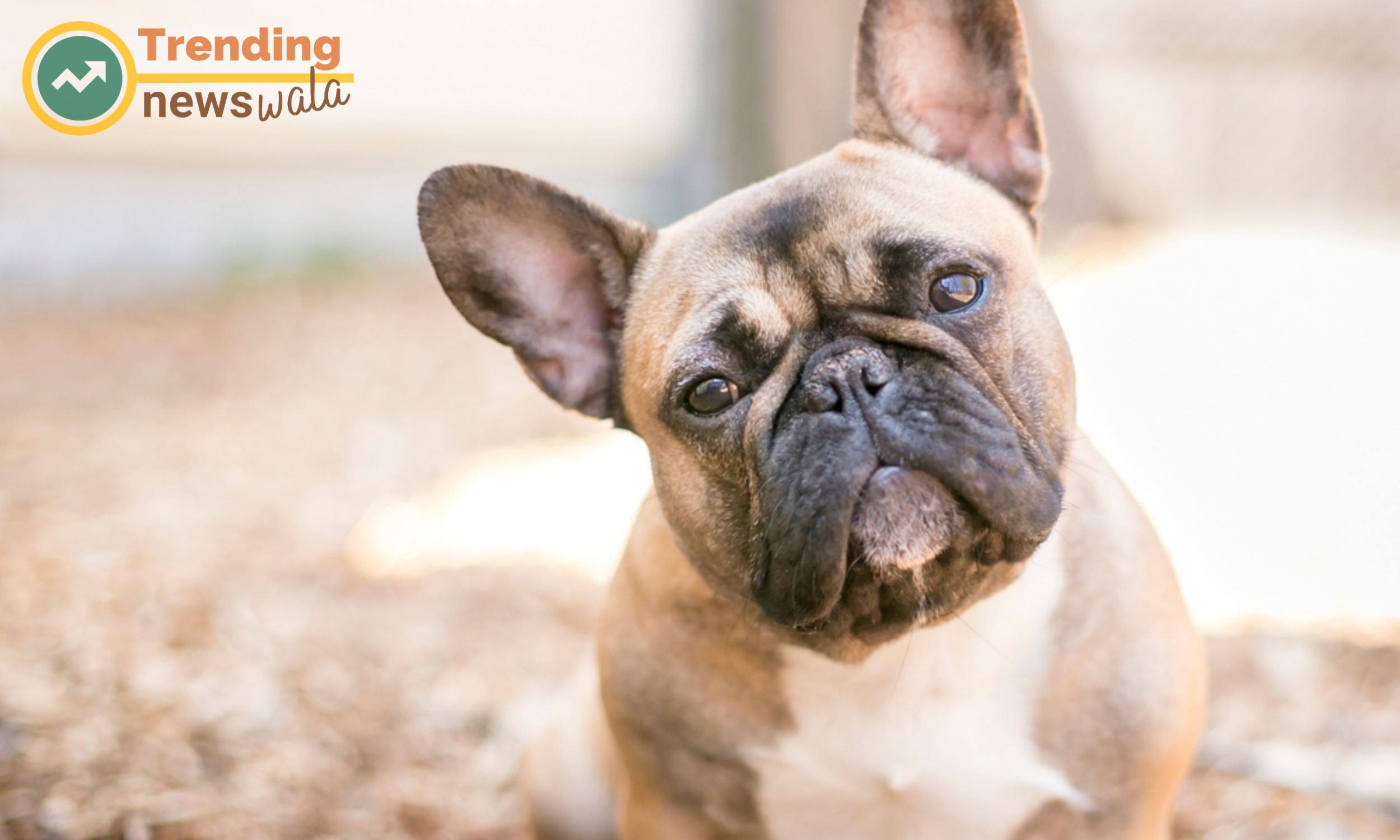
While French Bulldogs are not overly active, they do require regular exercise to maintain a healthy weight and mental well-being. Daily walks, play sessions, and interactive toys are essential to keep them engaged. Due to their brachycephalic (short-nosed) structure, it's crucial to avoid strenuous activities in extreme temperatures.
While French Bulldogs are a small breed, they still require regular exercise and mental stimulation to keep them healthy and happy. Here are some details on exercise and activity for French Bulldogs:
Moderate Exercise Requirements: French Bulldogs are not extremely high-energy dogs, but they do benefit from regular, moderate exercise. Aim for around 20-30 minutes of exercise per day. This can be broken down into shorter walks or play sessions.
Walking: Daily walks are a great way to fulfill your Frenchie's exercise needs. A couple of short walks or one longer walk can help burn off energy and provide mental stimulation. Use a harness instead of a collar to avoid putting pressure on their sensitive necks.
Playtime: French Bulldogs love interactive play. Engage them in games like fetch or tug-of-war, making sure not to overexert them, especially in warm weather. Puzzle toys or treat-dispensing toys can also provide mental stimulation.
Indoor Activities: French Bulldogs are adaptable and can be comfortable living in apartments or homes without yards. Indoor play, such as chasing a ball or playing with squeaky toys, can be an effective way to keep them active, especially during inclement weather.
Socialization: French Bulldogs are social animals and benefit from interactions with other dogs. Dog parks or playdates with other friendly dogs can provide both exercise and socialization opportunities.
Avoid Overexertion: Due to their brachycephalic nature, French Bulldogs may have difficulty regulating their body temperature. Be cautious about overexertion, especially in hot or humid weather. Exercise them during cooler parts of the day and ensure they have access to water.
Training as Exercise: Incorporate training sessions into your Frenchie's routine. Mental stimulation is just as important as physical exercise. Teach them new tricks, use obedience commands, or engage in agility activities to challenge their minds.
Swimming: Some French Bulldogs enjoy swimming, and it's a low-impact exercise that is easy on their joints. However, always monitor them closely around water, and not all French Bulldogs are natural swimmers.
Health Considerations: Before starting any new exercise routine, consult with your veterinarian, especially considering the breed's susceptibility to respiratory issues. They can provide guidance on the appropriate level of exercise and any precautions to take.
Remember that individual dogs may have different energy levels and preferences. Pay attention to your French Bulldog's cues and adjust their exercise routine accordingly. Regular exercise not only helps maintain their physical health but also contributes to their mental well-being and overall happiness.
Grooming and Care
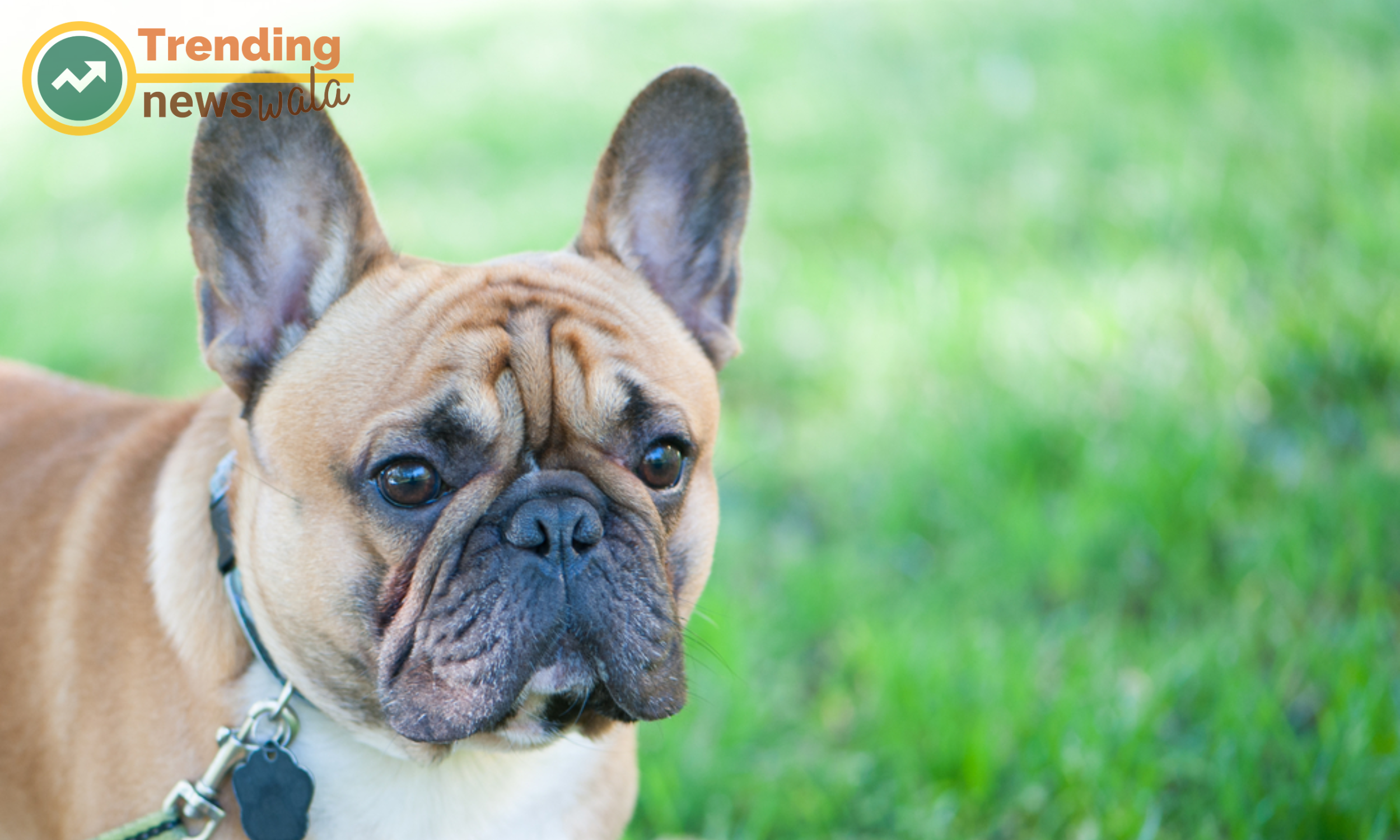
French Bulldogs have a short, smooth coat that requires minimal grooming. Regular brushing helps reduce shedding, and occasional baths keep their coat clean. Paying attention to their facial wrinkles and cleaning their ears regularly helps prevent skin and ear issues. Dental care is also important, and routine veterinary check-ups ensure overall well-being.
French Bulldogs have a short, smooth coat that requires minimal grooming, but there are specific care and grooming practices to keep them healthy and happy. Here are more details on grooming and care for French Bulldogs:
Brushing: French Bulldogs shed moderately, and regular brushing helps remove loose hair and minimizes shedding. Use a soft brush or grooming mitt to brush their coat at least once a week. This not only keeps their coat in good condition but also provides a bonding opportunity between you and your Frenchie.
Bathing: French Bulldogs do not require frequent baths unless they get visibly dirty or start to smell. Over-bathing can strip their skin of natural oils, leading to dryness. Use a mild dog shampoo and ensure thorough rinsing to prevent skin irritation.
Wrinkle Cleaning: Frenchies have adorable facial wrinkles, especially around the nose and eyes. Regularly clean these wrinkles with a damp cloth to prevent the buildup of dirt, debris, or moisture, which can lead to skin infections. Make sure to dry the wrinkles thoroughly after cleaning.
Ear Cleaning: Due to their bat-like ears, French Bulldogs may be prone to ear infections. Check their ears regularly for redness, odor, or signs of discomfort. Clean their ears with a vet-approved ear cleaner, and avoid inserting anything deep into the ear canal.
Nail Trimming: Keep your Frenchie's nails trimmed to prevent discomfort and potential joint issues. Use a dog nail clipper or grinder, and be cautious not to cut into the quick. If you're unsure, ask your veterinarian or a professional groomer for guidance.
Teeth Care: Dental health is crucial for French Bulldogs. Brush their teeth regularly with a dog-friendly toothbrush and toothpaste. Dental chews or toys can also contribute to oral hygiene. Regular dental care helps prevent tooth decay and gum disease.
Regular Veterinary Check-ups: Schedule regular check-ups with your veterinarian to monitor your Frenchie's overall health. They can provide vaccinations, dental exams, and address any health concerns early on. Discuss any changes in behavior, eating habits, or physical appearance during these visits.
Proper Nutrition: Feed your French Bulldog a well-balanced, high-quality dog food appropriate for their age and size. Obesity is a concern with this breed, so monitor their weight and adjust their diet accordingly. Consult with your veterinarian for specific dietary recommendations.
Temperature Considerations: French Bulldogs can be sensitive to extreme temperatures due to their short noses. Avoid prolonged exposure to very hot or cold weather, and provide shade and water during outdoor activities. Be cautious during hot weather to prevent heat-related issues.
Exercise and Mental Stimulation: Regular exercise is essential for overall health, including their skin and coat. Additionally, mental stimulation through play, training, and interactive toys contributes to their well-being.
Remember that every dog is unique, and individual grooming needs may vary. Pay attention to your French Bulldog's specific requirements and consult with your veterinarian or a professional groomer for personalized advice. Regular grooming not only maintains their physical health but also strengthens the bond between you and your beloved Frenchie.
Health Considerations

Brachycephalic breeds, including French Bulldogs, are prone to certain health issues due to their facial structure. Common concerns include respiratory difficulties, heat sensitivity, and dental problems. Responsible breeding practices, regular veterinary care, and maintaining a healthy lifestyle can contribute to the well-being of Frenchies.
French Bulldogs are generally healthy dogs, but like any breed, they are prone to specific health considerations that potential owners should be aware of. Here are more details on health considerations for French Bulldogs:
Brachycephalic Syndrome: French Bulldogs have a brachycephalic (short-nosed) facial structure, which can lead to respiratory issues. Brachycephalic airway obstruction syndrome (BAOS) is a common concern and includes conditions like stenotic nares (narrow nostrils), elongated soft palate, and a hypoplastic trachea. This can result in breathing difficulties, especially during exercise or in hot weather. Owners should be mindful of their breathing and avoid strenuous activities in extreme temperatures.
Heat Sensitivity: Due to their brachycephalic nature, French Bulldogs are more sensitive to heat. They can easily overheat, leading to heatstroke. Owners should provide shade, avoid vigorous exercise in hot weather, and always ensure access to fresh water. Be cautious during warm months to prevent heat-related issues.
Joint Issues: French Bulldogs may be prone to certain joint conditions, such as hip dysplasia and patellar luxation. Maintaining a healthy weight, providing joint supplements if recommended by a veterinarian, and avoiding excessive jumping can help mitigate the risk of joint problems.
Allergies and Skin Issues: Some French Bulldogs may develop allergies, leading to skin irritations, itching, or ear infections. Regular grooming, a balanced diet, and prompt treatment of any skin issues can help manage allergies. Consult with a veterinarian if you notice persistent skin problems.
Eye Conditions: French Bulldogs can be susceptible to certain eye conditions, including cherry eye (prolapsed gland of the third eyelid), corneal ulcers, and juvenile cataracts. Regular eye checks during veterinary visits can help identify and address these issues early.
Ear Infections: The unique shape of French Bulldogs' ears can make them prone to ear infections. Regular cleaning and inspection of the ears can help prevent infections. If you notice redness, swelling, or an unusual odor, consult with a veterinarian.
Obesity: French Bulldogs have a tendency to gain weight, and obesity can exacerbate health issues such as joint problems and respiratory difficulties. Feed a balanced diet, monitor portion sizes, and provide regular exercise to maintain a healthy weight.
Intolerance to Anesthesia: Brachycephalic breeds, including French Bulldogs, may have a higher risk of complications during anesthesia. It's essential to inform veterinarians about the breed's sensitivity, and pre-anesthetic testing may be recommended.
Regular Veterinary Check-ups: Regular veterinary visits are crucial for preventive care. Routine check-ups allow veterinarians to monitor your Frenchie's overall health, address any concerns early on, and provide necessary vaccinations.
Genetic Health Testing: Responsible breeders often conduct genetic health testing on breeding dogs to identify and mitigate potential hereditary conditions. When getting a French Bulldog, it's advisable to choose a reputable breeder who prioritizes the health and well-being of the breed.
Remember that individual dogs may have different health experiences, and early detection and proactive care play vital roles in maintaining the well-being of French Bulldogs. Regular communication with a veterinarian and awareness of the breed's specific health considerations are essential for providing the best care for your furry friend.
Training and Socialization
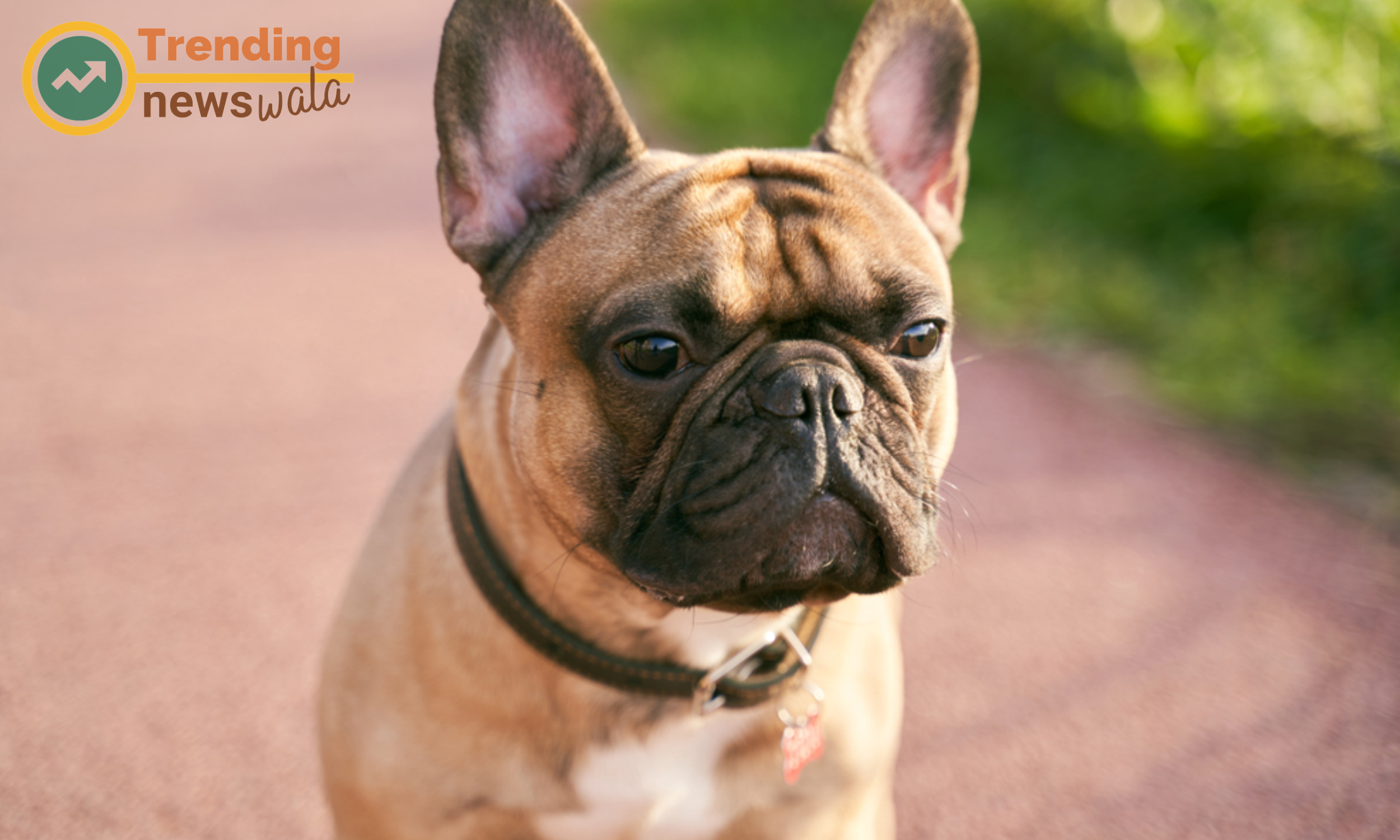
French Bulldogs are intelligent and can be trained with positive reinforcement techniques. Early socialization is crucial to ensure they develop well-behaved and confident personalities. Consistent training, positive interactions, and a loving environment contribute to a well-adjusted Frenchie.
Training and socialization are essential components of raising a well-behaved and well-adjusted French Bulldog. Here are more details on training and socialization for French Bulldogs:
Training:
Positive Reinforcement: French Bulldogs respond well to positive reinforcement. Use treats, praise, and rewards to encourage desired behaviors. Positive reinforcement builds a strong bond between the owner and the dog and makes training sessions enjoyable.
Consistency: Consistency is key in training French Bulldogs. Use the same commands and cues consistently, and enforce rules uniformly. This helps avoid confusion and helps your Frenchie understand what is expected.
Short Training Sessions: French Bulldogs have a shorter attention span, so keep training sessions brief and engaging. Aim for 5-10 minute sessions, several times a day, to keep them focused and interested.
Basic Commands: Teach basic commands such as sit, stay, down, and come. These commands are not only practical for daily interactions but also form the foundation for good behavior in various situations.
Social Training: Introduce your Frenchie to different environments, people, and situations to help them become more adaptable and less anxious. Gradually expose them to various stimuli to build their confidence.
Leash Training: French Bulldogs should be comfortable walking on a leash. Start leash training early, and use positive reinforcement to reward good behavior. This helps prevent pulling and makes walks more enjoyable.
Obedience Classes: Consider enrolling your French Bulldog in obedience classes. These classes provide structured training environments, socialization opportunities with other dogs, and guidance from experienced trainers.
Early Socialization: Start socializing your Frenchie as early as possible. Expose them to various people, environments, sounds, and other animals during their critical socialization period (usually up to 16 weeks of age). This helps prevent fear and anxiety later in life.
Other Dogs and Pets: French Bulldogs generally get along well with other dogs and pets, but early introductions are crucial. Supervise interactions and ensure positive experiences to foster good relationships.
People and Children: French Bulldogs are known for being friendly and sociable with people, including children. However, it's essential to teach children how to interact appropriately with dogs and supervise their interactions.
Handling and Grooming: Get your Frenchie used to being handled, including touching their paws, ears, and mouth. This makes grooming and veterinary care less stressful. Gradually introduce them to grooming tools like brushes and nail clippers.
Public Spaces: Expose your Frenchie to various public spaces, such as parks, cafes, and pet-friendly stores. This helps them feel comfortable in different environments and encourages good behavior in public.
Positive Experiences: Ensure that socialization experiences are positive. Use treats and praise to reward calm and confident behavior. Avoid overwhelming situations, and let your Frenchie explore at their own pace.
Continued Socialization: Socialization is an ongoing process. Continue exposing your Frenchie to new people, places, and experiences throughout their life to prevent the development of fear or anxiety.
Remember that every dog is an individual, and some French Bulldogs may have different temperaments or sensitivities. Patience, positive reinforcement, and consistent training and socialization efforts contribute to a well-mannered and well-adjusted French Bulldog. If you encounter challenges, seek guidance from professional trainers or behaviorists to address specific issues effectively.
Popularity and Celebrity Status
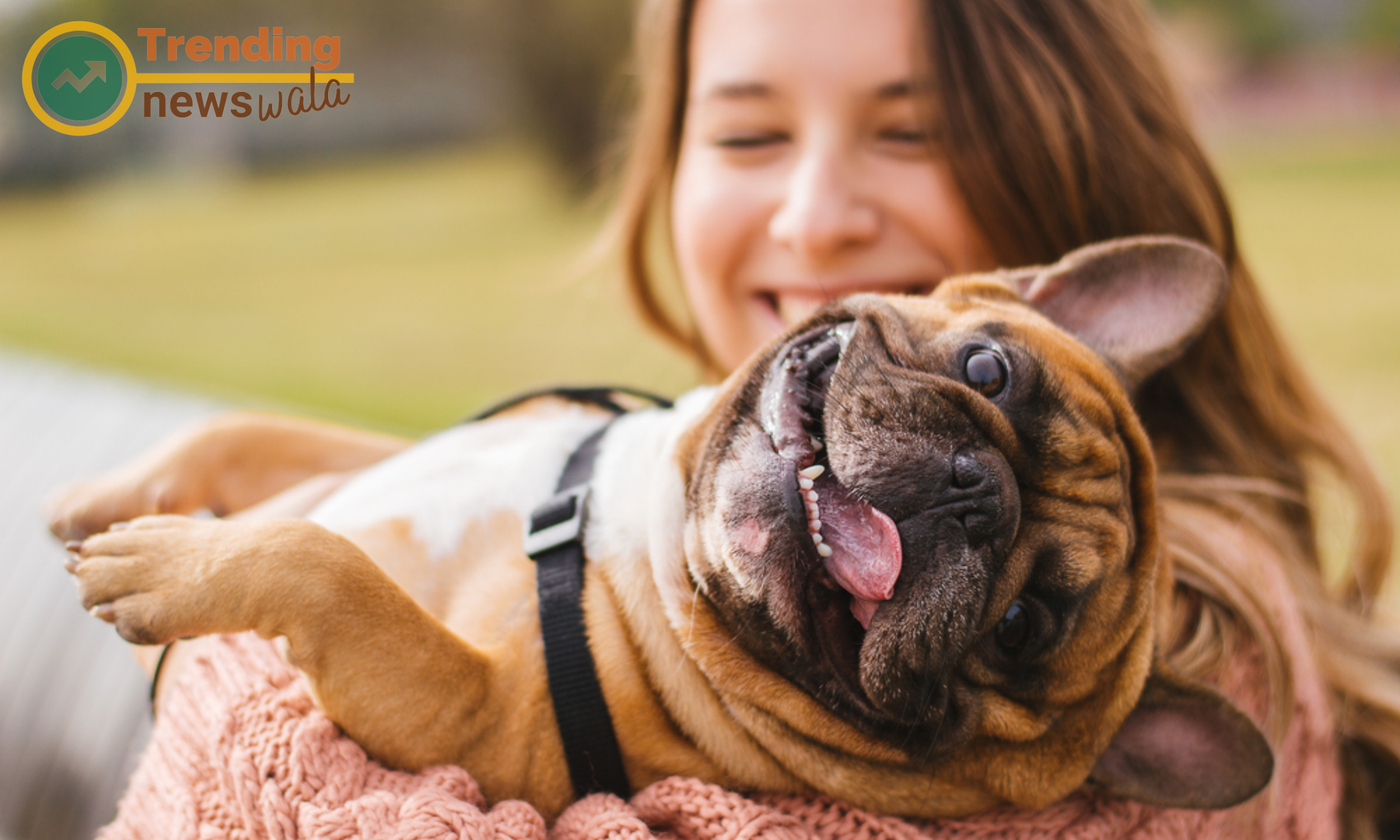
French Bulldogs have gained immense popularity in recent years and have even become celebrities in their own right. Numerous public figures and celebrities have adopted Frenchies, contributing to the breed's allure and recognition worldwide.
French Bulldogs have achieved widespread popularity and have even gained celebrity status in recent years. Their charming appearance, friendly demeanor, and adaptability have contributed to their rise in popularity. Here are more details on the popularity and celebrity status of French Bulldogs:
Celebrity Endorsement: Many celebrities have embraced French Bulldogs as their preferred canine companions, sharing their affection for the breed on social media platforms. This exposure has contributed significantly to the breed's popularity.
Social Media Presence: French Bulldogs are often featured on various social media platforms, particularly Instagram, where they have become social media sensations. Numerous French Bulldogs have their own accounts, accumulating large followings, and their adorable pictures and videos often go viral.
Television and Movies: French Bulldogs have made appearances in various television shows and movies, further enhancing their popularity. Their distinctive appearance and lovable personalities make them sought-after choices for on-screen roles.
Fashion and Merchandise: The iconic bat-like ears and compact size of French Bulldogs have made them popular in the world of fashion and merchandise. Their images are frequently used on clothing, accessories, and various merchandise, appealing to fans of the breed.
High Profile Owners: Well-known personalities, including actors, musicians, and athletes, have been photographed with their French Bulldogs, generating additional interest in the breed. When people see their favorite celebrities with these charming dogs, it often influences their choice of a pet.
Instagram and Internet Fame: French Bulldogs have become internet sensations, with countless videos and images showcasing their playful antics, adorable expressions, and quirky behaviors. Platforms like Instagram and YouTube have played a significant role in spreading the appeal of French Bulldogs globally.
Pet Influencers: Some French Bulldogs have risen to the status of "pet influencers." These dogs have substantial followings and often collaborate with brands for promotional purposes, creating a new niche in the world of online influencers.
Popularity Rankings: The American Kennel Club (AKC) has consistently ranked French Bulldogs among the most popular breeds in the United States. Their rankings reflect the breed's widespread appeal and continued popularity among dog enthusiasts.
Unique Characteristics: French Bulldogs possess distinctive physical features, including their compact size, bat ears, and expressive faces. These characteristics contribute to their popularity, as they stand out and leave a lasting impression on those who encounter them.
Adaptability: French Bulldogs are adaptable to various living situations, making them suitable for both city dwellers and those in suburban or rural areas. Their ability to thrive in different environments has contributed to their broad appeal.
While the popularity of French Bulldogs is undeniable, it's crucial for potential owners to research the breed thoroughly and ensure that they can meet the specific needs of these dogs. Responsible ownership, including proper care, training, and attention to health considerations, is essential for the well-being of French Bulldogs, regardless of their celebrity status.
Community and Frenchie Enthusiasts
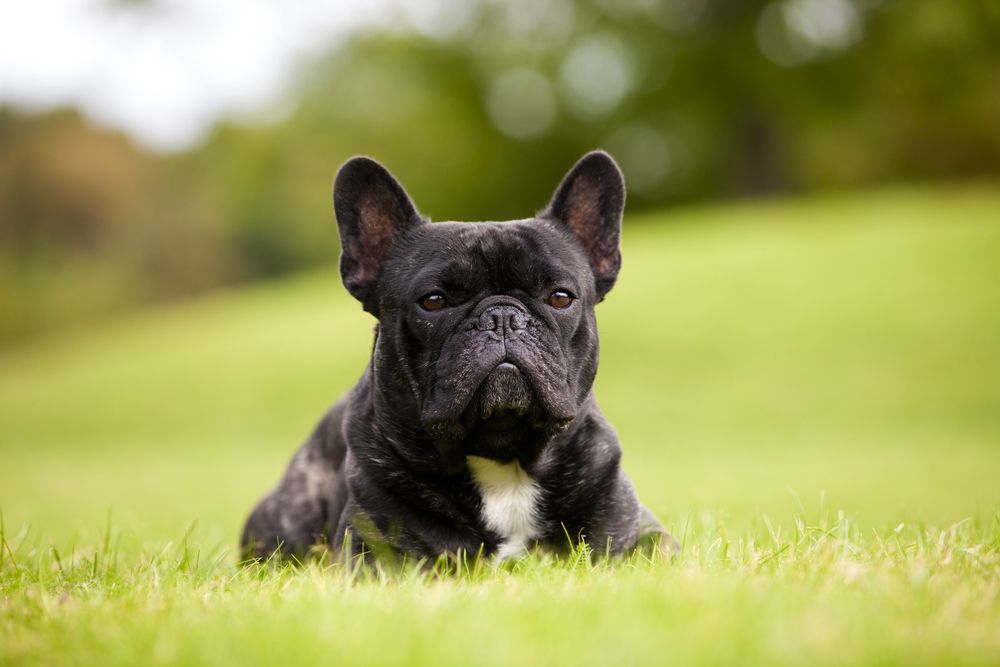
The French Bulldog community is a vibrant and passionate group of enthusiasts who share their love for the breed through social media, events, and dedicated clubs. Online platforms often feature adorable Frenchie photos, helpful tips, and a supportive network for owners.
The French Bulldog community is a passionate and supportive network of Frenchie enthusiasts, including breeders, owners, rescue organizations, and fans of the breed. Here are more details on the community and French Bulldog enthusiasts:
Online Communities: Frenchie enthusiasts often connect through various online platforms and forums dedicated to French Bulldogs. Social media groups, forums, and websites provide spaces for sharing experiences, asking for advice, and celebrating the unique qualities of Frenchies.
Breed Clubs: French Bulldog breed clubs and associations exist at both national and international levels. These clubs often organize events, shows, and competitions that bring together French Bulldog enthusiasts. They also contribute to breed advocacy, education, and responsible breeding practices.
Rescue Organizations: French Bulldog rescue organizations play a vital role in the community by helping rehome Frenchies in need and providing resources for adopters. These organizations often rely on a network of volunteers and foster homes dedicated to the well-being of French Bulldogs.
Breeders and Exhibitors: Responsible breeders are an integral part of the French Bulldog community. They strive to maintain and improve the breed's standards, emphasizing health, temperament, and conformation. Breeders often participate in dog shows and competitions to showcase their French Bulldogs and contribute to the breed's overall well-being.
Health Advocacy: Enthusiasts within the community actively participate in health advocacy efforts for French Bulldogs. This includes supporting research into breed-specific health issues, promoting responsible breeding practices, and raising awareness about the importance of regular veterinary care.
Meetup Groups: In various cities, Frenchie enthusiasts organize meetup groups where owners and their French Bulldogs can socialize, share tips, and enjoy activities together. These gatherings provide opportunities for socialization and play, fostering a sense of community among French Bulldog lovers.
Educational Resources: French Bulldog enthusiasts often contribute to educational resources about the breed. This can include articles, blogs, and guides on topics such as grooming, training, health care, and breed history. Sharing knowledge helps both new and experienced owners provide the best care for their French Bulldogs.
Supportive Networks: The French Bulldog community is known for its supportive and inclusive nature. Members often offer advice, share stories, and provide emotional support to fellow Frenchie enthusiasts. This sense of community helps create lasting connections among individuals who share a common love for the breed.
Advocacy for Responsible Ownership: Frenchie enthusiasts actively advocate for responsible ownership practices. This includes promoting ethical breeding, responsible pet ownership, and proper care for French Bulldogs. They emphasize the importance of understanding the breed's specific needs and characteristics.
Celebrating the Breed: Enthusiasts frequently celebrate the unique qualities and charm of French Bulldogs. Whether through social media campaigns, events, or themed gatherings, the community often comes together to showcase the endearing traits that make French Bulldogs beloved companions.
The French Bulldog community is a vibrant and diverse group united by a shared love for this charming breed. Through their dedication to responsible ownership, advocacy for health and well-being, and the celebration of the breed's unique qualities, Frenchie enthusiasts contribute to the continued popularity and positive reputation of French Bulldogs worldwide.

What makes French Bulldogs unique?
French Bulldogs are known for their distinctive bat-like ears, charming appearance, and friendly personalities. They are compact, adaptable, and make excellent companions.
What is the average lifespan of a French Bulldog?
The average lifespan of a French Bulldog is typically between 10 to 14 years. Proper care, a balanced diet, and regular veterinary check-ups contribute to their longevity.
How much exercise do French Bulldogs need?
French Bulldogs have moderate exercise needs. Daily walks, playtime, and mental stimulation are essential. Be cautious with strenuous activities due to their brachycephalic (short-nosed) structure.
Are French Bulldogs good with children and other pets?
Yes, French Bulldogs are generally good with children and get along well with other pets. Early socialization is key to ensuring positive interactions.
What grooming requirements do French Bulldogs have
French Bulldogs have short coats that require regular brushing to manage shedding. Wrinkle cleaning, ear cleaning, and nail trimming are also important parts of their grooming routine.
Do French Bulldogs have health concerns?
French Bulldogs may be prone to respiratory issues due to their brachycephalic nature. They can also experience joint problems, allergies, and skin issues. Regular veterinary check-ups are crucial.
How do I train a French Bulldog?
Positive reinforcement, consistency, and short training sessions work well with French Bulldogs. Basic commands, socialization, and early training contribute to their well-behaved nature.
Are French Bulldogs suitable for apartment living?
Yes, French Bulldogs are adaptable and thrive in various living situations, including apartments. Regular walks and indoor play sessions meet their exercise needs.
Is there a French Bulldog community?
Yes, there is a vibrant French Bulldog community with online forums, social media groups, and breed clubs. Enthusiasts share experiences, offer advice, and celebrate the charm of French Bulldogs.
Are French Bulldogs good for first-time dog owners?
Yes, French Bulldogs can be a good choice for first-time dog owners due to their friendly nature and relatively low maintenance. However, consistent training and attention to their health needs are important.


